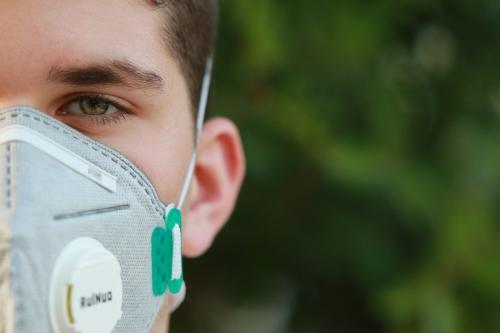HydroxyChloroquine (HCQ) in Corona Treatment – Does this really work?

HydroxyChloroquine
(HCQ) is basically classified in Anti malarial drug. Anti malarial drugs are
those which used in treating Malaria (parasitic infection). HCQ also modifies
immune system. So it is also used in immune mediated diseases like Rheumatoid
Arthritis (RA) and Systemic Lupus Erythematosus (SLE).
Currently
entire world is facing Corona Virus –
COVID 19 pandemic. Till date we are not able to find out 100% effective anti viral
drug against Corona Virus. So we are testingother available drugshoping to work
against Corona Virus. Chloroquine and HCQ are examples of such drugs.
Few
published articles and interest from US President gain attention ofentire world
towards HCQ as a potent treatment option against Corona Virus.
Let’s
first see how this drug works against Corona Virus. The mechanism of action is
two stepped.
First
is blocking acidification of endosomes (human cells) and second is inhibition
of virus attachment to ACE2 receptors of human cells. With the help of first
mechanism, HCQ works as preventing drug and can be used in Prophylaxis. With
the help of first and second mechanisms, HCQ acts against Corona Virus and
prevent further complications.
So
many countries have started giving HCQ as prophylaxis to their healthcare
workers (doctors, nurses) in a hope that HCQ will prevent Corona infection to
them. At the same time, doctors have started using HCQ in the treatment
protocol for Corona Positive patients.
Like
every drug, this drug is also having a lot of side effects. Commonly seen side
effects are headache, gastritis, nausea, vomiting, decreased appetite, weight
loss, ringing sensation in ear (tinnitus), mood swings, hair fall etc. But the
most worrisome side effect is cardiac toxicity. HCQ can cause QTc prolongation,
arrhythmia, heart block, sudden cardiac arrest, palpitations, hypotension,
myocardial ischemia and infarction etc. Ask a
pulmonologist if you develop any of this side effect.
All
these cardiac side effects are acute, sudden in onset. They are life
threatening too. So one should weigh risk benefit ratio before starting HCQ as
Corona prophylaxis or as Treatment.
In
some small single hospital studies from US and Italy , the death rate suddenly
increased after starting HCQ. The analysis revealed that almost all patients
are died because of cardiac complications. There are main two reasons for this
unwanted outcome.
First
is concomitant use of Azithromycin. In COVID 19 patients, Azithromycin is also
used to cover secondary bacterial infection. It is given in almost all COVID 19
patients. This Azithromycin also causes QTc prolongation, cardiac side effect.
So when these patients receive HCQ, magnitude of cardiac side effects increased
and chances of sudden cardiac arrest are high.
Second
is underlying poor cardiac condition. Many COVID positive patients are old age
(more than 60 years), having diabetes, hypertension, chronic kidney diseases,
previous heart diseases, heart failure etc. Almost all will have compromised cardiac
functions. So when they receive HCQ, further deterioration of cardiac functions
occur which ultimately lead to severe cardiac side effects and death.
So
one should decide use of HCQ as prophylaxis and treatment cautiously.
At
present many hospitals follow below mentioned guidelines for HCQ in COVID 19
situation.
Guidelines
for HCQ use as Corona Prophylaxis –
1) Risk benefit ratio along with
side effects should be explained indetail to healthcare provider.
2) Baseline ECG (electro
cardio gram) should be done in all individuals.
3) Dose is 200mg twice daily for
first day then 200mg once a week for total 6 weeks.
4) Antacid tablet can be
given on empty stomach if individual develops nausea, vomiting or gastritis.
5) Repeat ECG should be
immediately if individual develops palpitations or missed beats.
Guidelines
for HCQ use as Corona Virus treatment-
1) Baseline ECG should be
done in all patients. Normal ECG with sinus rhythm is must before starting HCQ.
2) It should be combined with
Azithromycin only in young patients with normal cardiac functions, ECG and
absence of co-morbidities like diabetes, hypertension, kidney diseases etc.
3) Better to avoid
concomitant Azithromycin to the patients above 60 years of age.
4) Once started, ECG should
be monitored daily.
5) Dose is 200mg twice daily
for 5-7 days based on clinical response.
6) After starting HCQ if
patient develops abnormality in ECG, HCQ should be stopped immediately.
7) Oncestopped, HCQ should
not be re challenged.
So in summary, use
of HCQ should be under observation of doctor. One should ask a doctor if any side effect
appear. Patient should discuss in detail about side effects before starting this
drug.





Comments